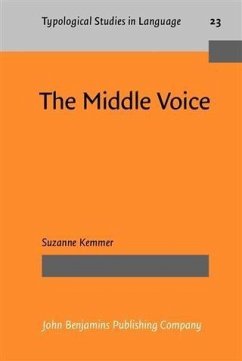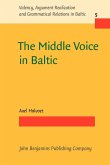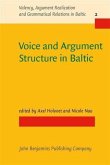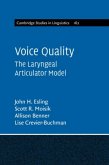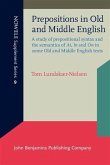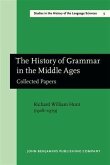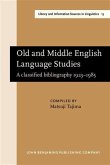This book approaches the middle voice from the perspective of typology and language universals research. The principal aim is to provide a typologically valid characterization of the category of middle voice in terms of which it can be incorporated in a cognitively-based theory of human language. The term "middle voice” has had a wide range of applications in the linguistic literature of this century. The main thesis in this volume is that there is a coherent, though complex, semantic category of middle voice in human language, which receives grammatical instantiation in many languages. The author claims there is a semantic property crucial to the nature of the middle, which she terms "relative elaboration of events”, that serves as a parameter along which the reflexive and the middle can be situated as semantic categories intermediate in transitivity between one-participant and two-participant events, and which differentiates reflexive and middle from one another. In this area, most analyses deal with one language and/or are limited to Indo-European languages. This work deals with a subset of middle-marking languages that was chosen so as to observe the highest possible number of different middle systems showing significant independent diachronic development.
Dieser Download kann aus rechtlichen Gründen nur mit Rechnungsadresse in A, B, BG, CY, CZ, D, DK, EW, E, FIN, F, GR, HR, H, IRL, I, LT, L, LR, M, NL, PL, P, R, S, SLO, SK ausgeliefert werden.

